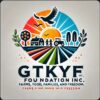In the heart of America’s Midwest—home to countless small-scale farms—farm bank incomes are falling sharply. Across the region, farmers are struggling to make ends meet, and many are facing an uncertain future. As net farm income drops and debt piles up, survival is slipping out of reach for family farm operators.
📉 Why Small-Scale Midwest Farmers Are Struggling
1. Net Farm Income Decline Is Ongoing
- Net farm income has decreased for two consecutive years after peaking in 2022—a level unseen since before COVID‑19.Investigate Midwest+3Investigate Midwest+3VernonReporter+3
- In 2024 alone, net farm income plunged nearly 24% in just two years, hitting a four-year low.Farm Bureau
2. Bankers Report Worsening Cash Flow
- An agricultural credit survey from the Minneapolis Federal Reserve shows 80% of Upper Midwest ag bankers reported lower farm income in early 2025. About 70% expect continued decline in the coming months.Federal Reserve Bank of Minneapolis+5Agweek+5Brownfield Ag News+5
- Farmers are cutting capital investments—major equipment and infrastructure expenses are on hold.The Guardian+2TIME+2Investigate Midwest+2
3. Loan Repayments Becoming Unmanageable
- With rising interest rates, farmland loan payments have reset to much higher levels—often 40% or more than earlier fixed rates.Federal Reserve Bank of Minneapolis+1Farm Bureau+1
- As incomes fall and payment obligations rise, borrowers’ ability to meet repayment has deteriorated quickly.Federal Reserve Bank of Minneapolis+1The Wall Street Journal+1
4. Midwest Communities Feeling the Ripple Effects
- In Kansas and other Prairie states, plummeting farm profits have hampered rural economies, with local businesses reporting 20–30% revenue drops.Investigate Midwest+5Reuters+5STLPR+5
- As farmers lose purchasing power, small town economies falter—local shops, services, and even entire downtowns are suffering.Reuters
💥 Consequences for Small-Scale Operations
Small Midwestern farms—often operating on tight margins—are especially vulnerable. Falling farm income and tighter credit access put pressure on lenders to tighten underwriting, which can force turnover in land ownership and accelerate consolidation trends across the region.Federal Reserve Bank of Minneapolis+6Farm Bureau+6fdic.gov+6
🧩 What GTKYF Foundation Inc Is Doing
- Host Financial Counseling and Cash‑flow Clinics: Workshops tailored to small-scale farmer cash management, budgeting through downturns, and navigating loan repricing.
- Assist with Access to Relief Funding: Identify USDA emergency programs, regional grants, and short-term bridge loans.
- Community Advocacy: Partner with regional farm bureaus to lobby for fair credit terms and support for small operators.
- Peer Support → Economic Resilience: Connect struggling farmers with mentors, networks, and cooperative purchasing power.
- Public Awareness Campaigns: Spotlight how farm income decline affects rural Main Streets—not just fields.
✅ Closing Thought
Midwest small farms are more than production units—they are lifelines for rural economies, generations of heritage, and local food systems. Addressing the decline in farm bank incomes is urgent—and that’s where GTKYF Foundation steps in.
Consider donating to support the efforts of GTKYF Foundation Inc.
MidwestFarmingCrisis #FarmIncomeDecline #SupportSmallFarms #FarmDebtStrain #RuralEconomicCrisis #GTKYFFoundation #SaveMainStreetFarms #FarmResilience

